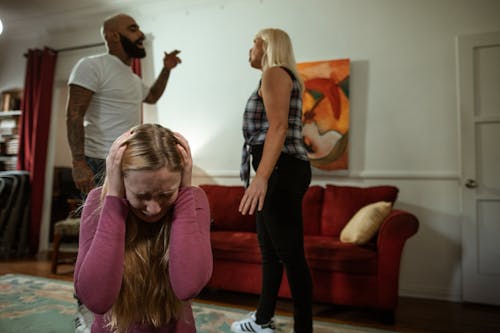Recognizing the Signs of a Toxic Relationship: A Guide to Identifying and Escaping Abuse

Identifying a toxic relationship can be difficult, as the signs may not always be obvious. However, there are certain red flags that can indicate a toxic dynamic.
- Constant criticism: A partner who is constantly critical of you, whether it be about your appearance, your personality, or your actions, is a sign of a toxic relationship. This type of behavior can erode your self-esteem and make you feel like you are not good enough.
- Lack of trust: Trust is a fundamental part of any healthy relationship. If your partner is constantly accusing you of cheating, lying, or hiding things from them, it is a sign that they do not trust you and that the relationship is toxic.
- Controlling behavior: A partner who tries to control every aspect of your life, including who you see, what you do, and what you wear, is a sign of a toxic relationship. This type of behavior can make you feel trapped and suffocated.
- Emotional manipulation: A partner who uses emotional manipulation to get their way is a sign of a toxic relationship. This can include guilt-tripping, gaslighting, or playing the victim.
- Physical or verbal abuse: Any form of physical or verbal abuse is a clear sign of a toxic relationship. If your partner hits, pushes, or threatens you, it is important to get out of the relationship as soon as possible.
It is important to remember that not all toxic relationships involve physical or verbal abuse. Sometimes, the toxic behavior is subtler and harder to spot. If you suspect that you may be in a toxic relationship, it is important to reach out to a therapist or counselor for support.
It is also important to know that it is never your fault that someone is treating you in a toxic or abusive way, and that you deserve to be treated with respect and kindness. Remember that you are not alone and that there is help available. It may take some time and effort to break out of a toxic relationship and it is important to have a safety plan in place and to seek out support from professionals and loved ones.
If you find yourself in a toxic relationship or domestic violence situation, it is important to seek help and support as soon as possible. Here are some resources that may be helpful:
- National Domestic Violence Hotline: This hotline provides confidential support and resources for victims of domestic violence. You can call them at 1-800-799-7233 or chat with them online at https://www.thehotline.org/
- National Coalition Against Domestic Violence: This organization provides resources and information for victims of domestic violence, including information on how to create a safety plan and where to find local shelters and services. You can find more information on their website at https://ncadv.org/
- RAINN (Rape, Abuse, & Incest National Network): This organization provides support and resources for survivors of sexual assault and domestic violence, including a confidential hotline that you can call at 1-800-656-4673. You can also chat with them online at https://www.rainn.org/
- The National Child Traumatic Stress Network: This organization provides resources and information on how to help children and families who have been affected by traumatic events, including domestic violence. You can find more information on their website at https://www.nctsn.org/
- Your local police department: If you are in immediate danger, call 911. Your local police department can also provide resources and information on how to get help and stay safe.


 Virtual Counseling for Florida Residents
Virtual Counseling for Florida Residents